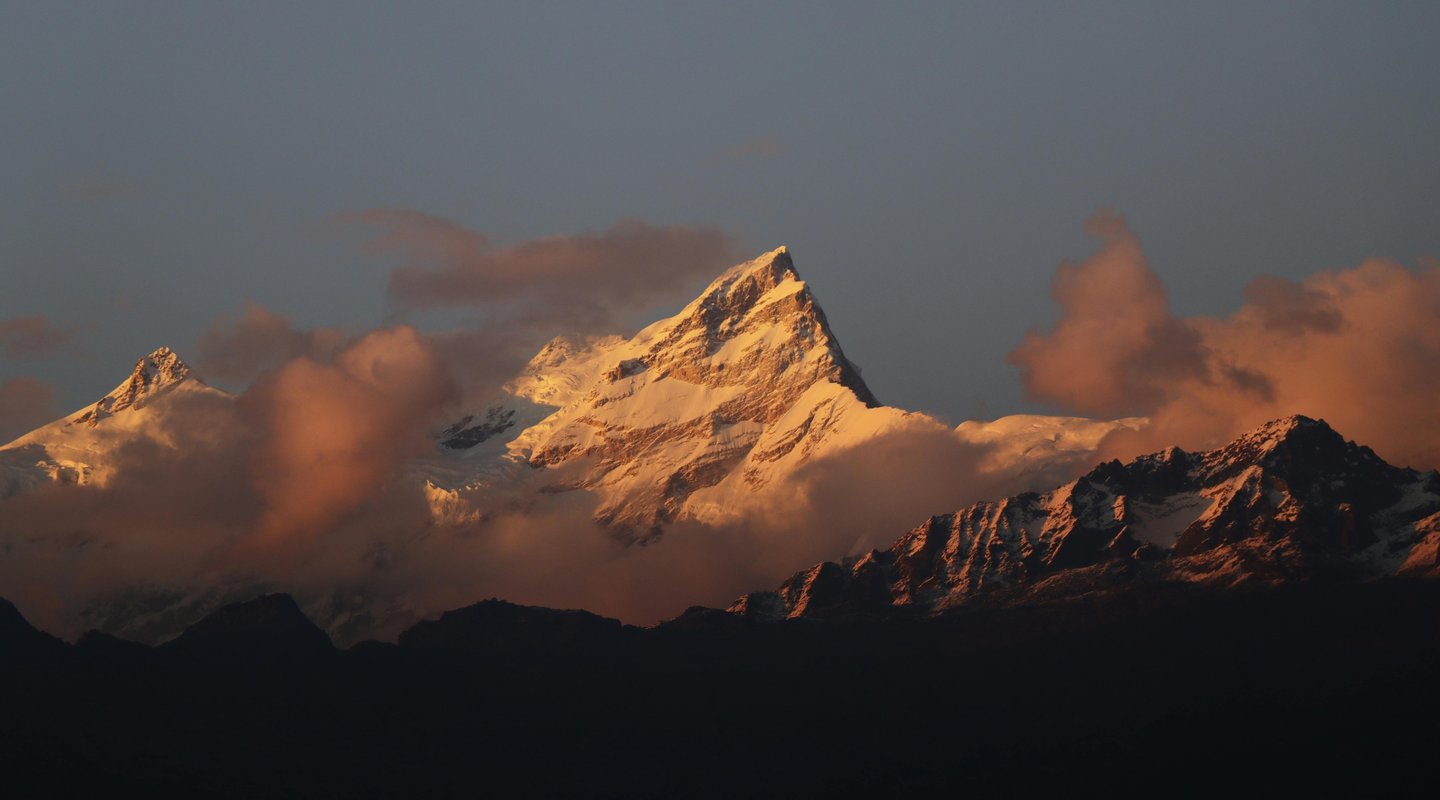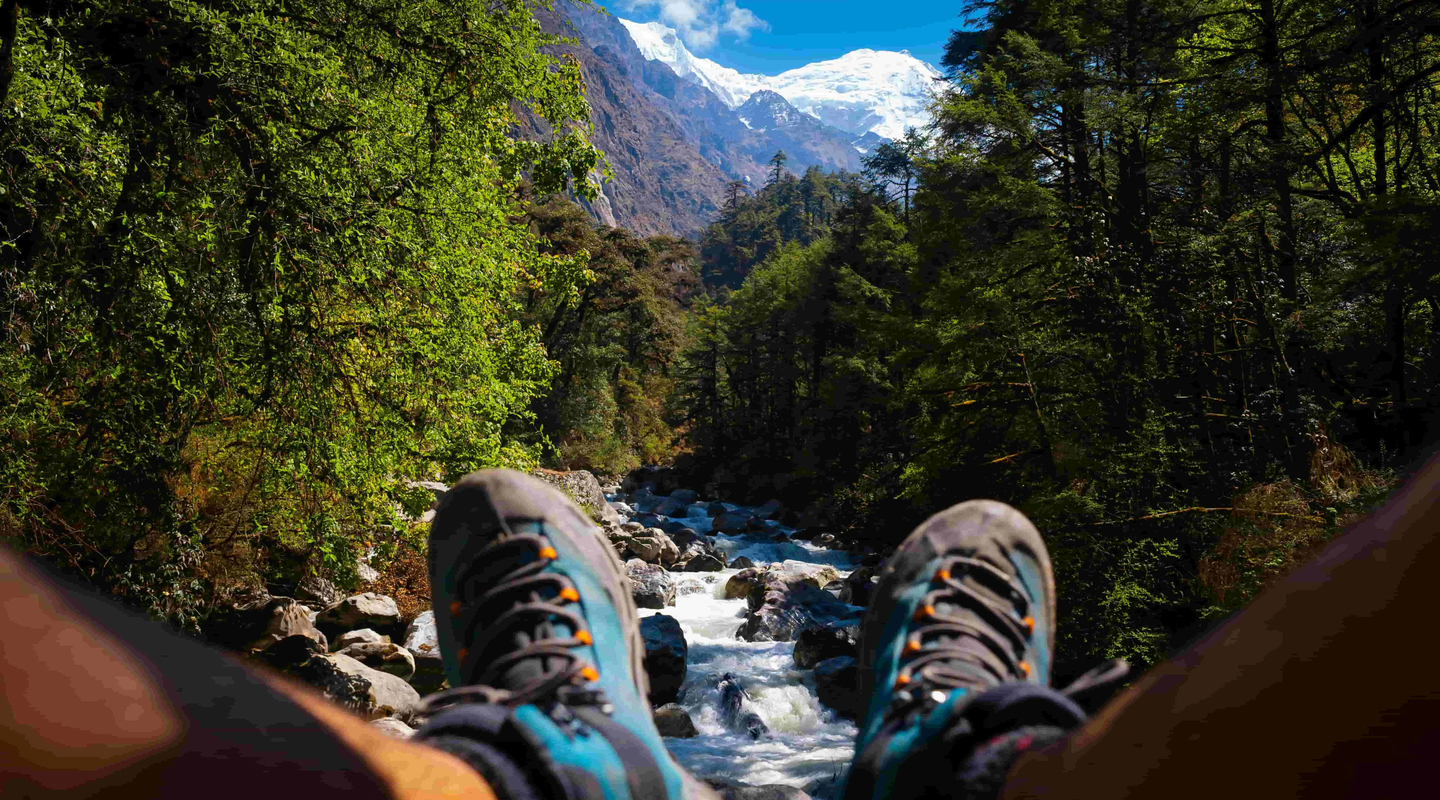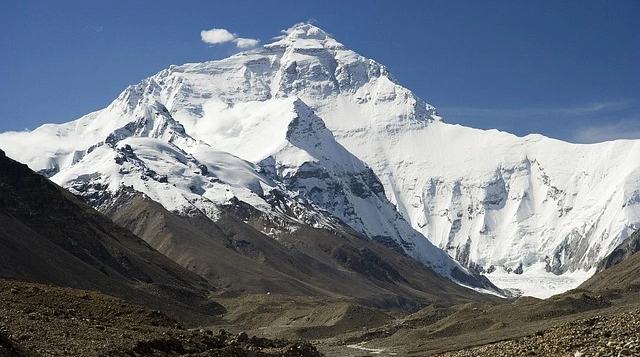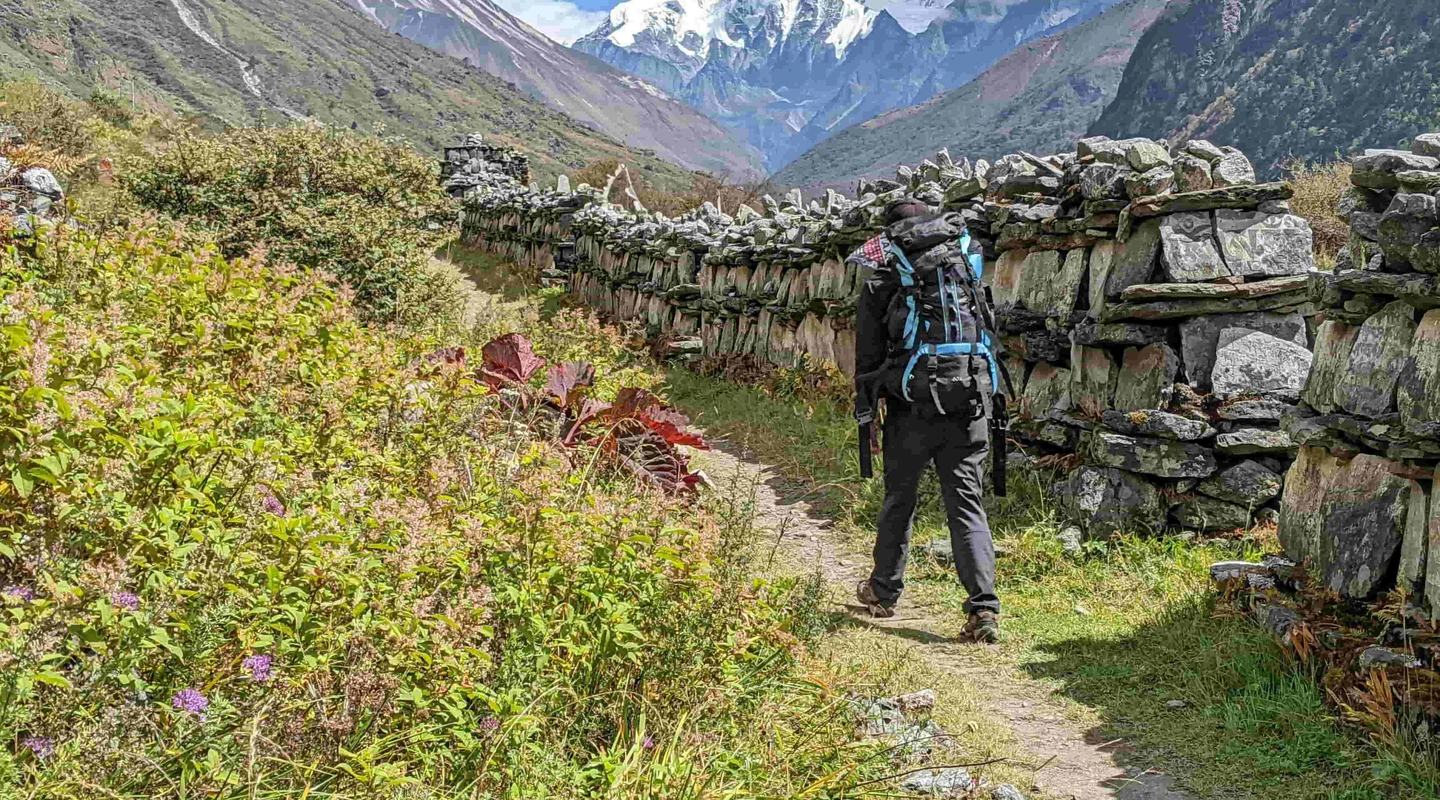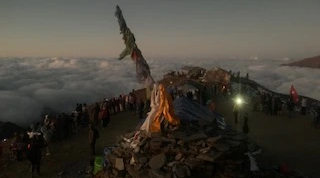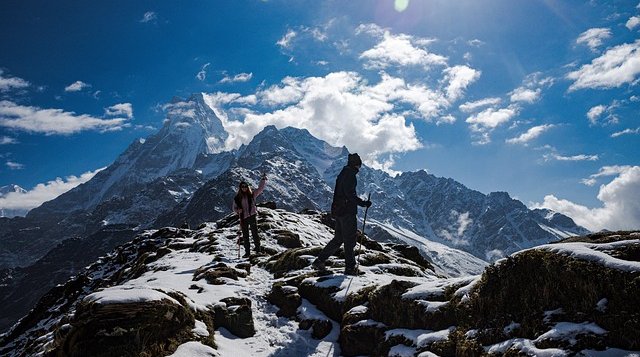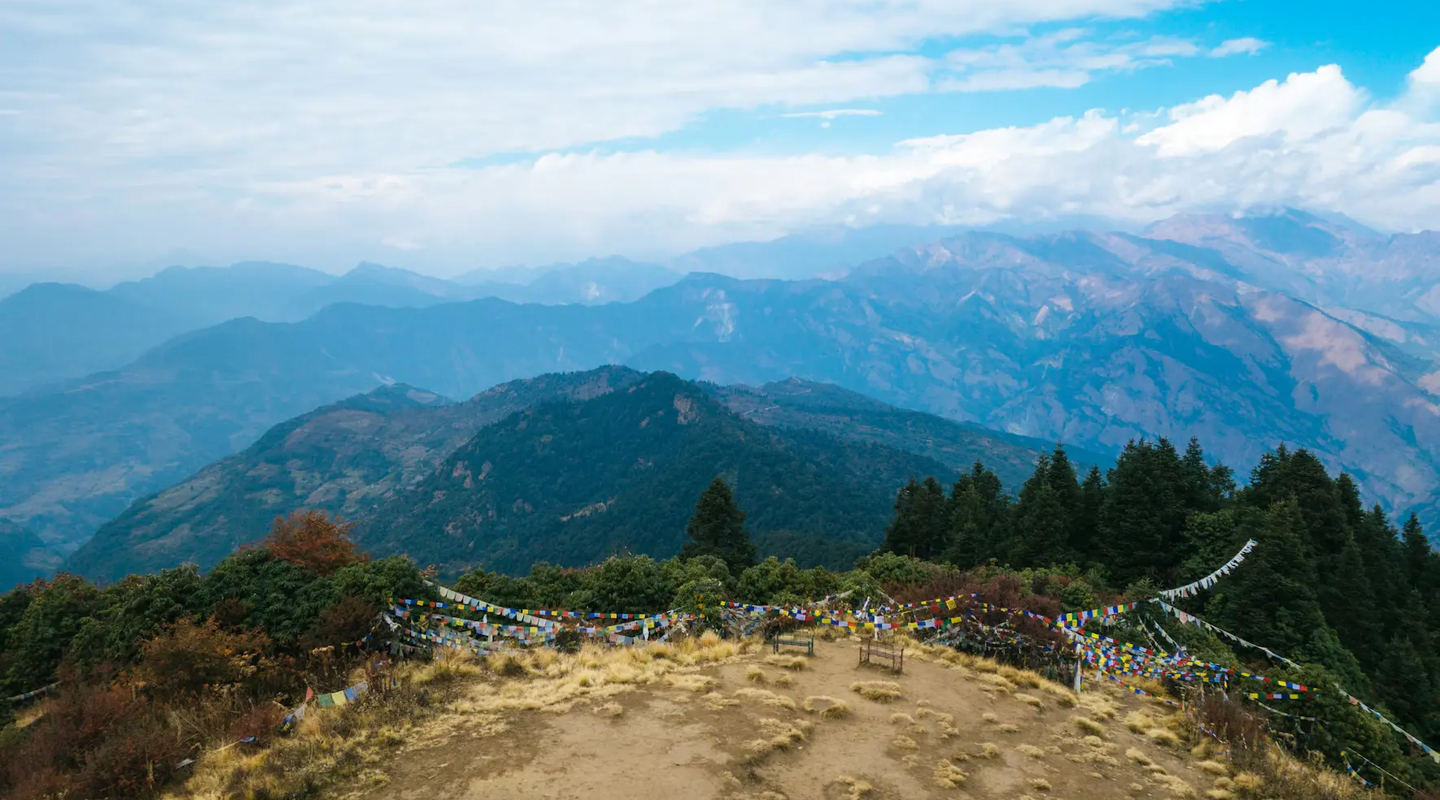Standing at 5,364 meters above sea level, Everest Base Camp isn't just a destination—it's a test of human endurance that demands respect and preparation. As someone who's guided dozens of trekkers through the Khumbu Valley, I've witnessed firsthand how the right Everest trekking plan can transform an overwhelming challenge into the adventure of a lifetime. Picture this: You're trekking through ancient Sherpa villages, prayer flags dancing overhead, and suddenly the world's highest peak reveals itself through the clouds. But here's the reality check—without proper high-altitude trekking preparation, that dream can quickly turn into a struggle against fatigue, altitude sickness, and disappointment.
The good news? With the comprehensive EBC trek fitness program I'm about to share, you'll arrive in Lukla ready to tackle those 130 kilometers with confidence. This isn't just another generic workout routine—it's a battle-tested approach that's helped hundreds of trekkers, from office workers to weekend warriors, successfully reach Base Camp. In this ultimate 2025 guide, you'll discover exactly how to prepare for EBC trek, including specific cardio for Everest trek, targeted strength training for EBC, and the mental strategies that separate successful summits from early descents. Whether you're starting from couch-potato status or you're already hitting the trails regularly, this Everest Base Camp fitness program adapts to your current level while pushing you toward peak performance.
Physical Preparation for EBC Trek: Building Your Mountain-Ready Body
The Foundation: Cardiovascular Excellence
Your heart and lungs are your best friends at altitude. The cardio workouts for Everest trek I recommend aren't just about running—they're about building the specific endurance you'll need for 5-8 hours of daily trekking on uneven terrain. Here's what works:
Progressive Cardio Plan:
- Weeks 1-2: 30-minute brisk walks, 4x per week
- Weeks 3-4: 45-minute hikes with 10-pound pack, include hills
- Weeks 5-6: 60-minute trail runs or steep hikes, 5x per week
- Weeks 7-8: 2-3 hour mountain hikes with full pack weight
The secret to effective cardiovascular training for trekking lies in variety. Mix these activities for optimal results:
- Stair Climbing: Find a stadium or tall building and climb for 30-45 minutes
- Incline Treadmill: Set to 15% grade, maintain 3-4 mph for endurance
- Cycling: Great for low-impact endurance, aim for 90+ minute rides
- Swimming: Excellent for breathing exercises for altitude and full-body conditioning
Strength Training for Trekking: Power Where It Counts
While cardio gets the spotlight, strength training for EBC prevents injuries and maintains energy throughout long trekking days. Focus on these muscle groups:
Lower Body Power (3x per week):
- Squats with backpack: 3 sets of 15-20
- Lunges (forward, reverse, lateral): 3 sets of 12 each leg
- Step-ups on bench: 3 sets of 15 each leg
- Calf raises: 4 sets of 20
- Single-leg deadlifts: 3 sets of 10 each side
Core Stability (daily):
- Planks: Work up to 3-minute holds
- Mountain climbers: 3 sets of 30
- Russian twists with weight: 3 sets of 25
- Bird dogs: 3 sets of 15 each side
Upper Body Endurance (2x per week):
- Push-ups: 3 sets to fatigue
- Rows (cable or dumbbell): 3 sets of 15
- Shoulder press: 3 sets of 12
- Back extensions: 3 sets of 20
Remember, hiking endurance comes from training specificity. Always wear your trekking boots during strength workouts in the final 4 weeks to condition your feet and ankles.
Altitude Acclimatization and Training: Preparing for Thin Air
Understanding Altitude Training for EBC
At Base Camp, you'll be breathing air with 50% less oxygen than at sea level. Altitude training for EBC starts before you leave home:
Pre-Trek Altitude Strategies:
- Altitude masks: Train 2-3x weekly with restricted airflow
- Breath control exercises: Practice yogic breathing techniques
- Hypoxic training: If available, use altitude chambers
- High-altitude weekends: Camp or hike above 3,000m when possible
Acclimatization Training Techniques
The best acclimatization for high altitude combines physical and breathing work:
- Box Breathing Exercise:
- Inhale for 4 counts
- Hold for 4 counts
- Exhale for 4 counts
- Hold empty for 4 counts
- Repeat 10-15 cycles, 3x daily
- Pressure Breathing:
- Inhale deeply through nose
- Purse lips and exhale forcefully
- Creates positive pressure in lungs
- Practice during cardio workouts
- Sleep High, Train Low:
- Use altitude tents if accessible
- Gradually increase sleeping altitude
- Maintain normal training intensity
Mental and Psychological Readiness: The Forgotten Training
Building Mental Preparation for EBC
Physical fitness means nothing if your mind quits first. Mental preparation for EBC requires deliberate practice:
Visualization for Trekking Success:
- Spend 10 minutes daily visualizing challenging trek moments
- See yourself successfully managing discomfort
- Imagine the joy of reaching Base Camp
- Practice positive self-talk during training
Mental Toughness Builders:
- Cold exposure: Cold showers build resilience
- Discomfort training: Deliberately choose harder options
- Meditation: 15 minutes daily for focus
- Goal segmentation: Break the trek into manageable chunks
Psychological Strategies for Success
During my years guiding, I've noticed successful trekkers share these mental traits:
- Acceptance of discomfort: They expect challenges
- Flexibility: They adapt when plans change
- Humor: They find joy in difficulty
- Patience: They respect the mountain's timeline
Mindset Training Exercises:
- Journal about why you're trekking
- Practice gratitude during hard workouts
- Build a motivation playlist
- Connect with past EBC trekkers for inspiration
Nutrition and Recovery: Fueling Your Training
Nutrition for EBC Trek Training
Your nutrition plan for trekking starts months before departure:
Training Diet Fundamentals:
- Carbohydrates: 55-60% of calories for energy
- Protein: 1.5g per kg body weight for recovery
- Fats: 25-30% for sustained energy
- Hydration: Minimum 3L daily, more during workouts
Pre-Workout Fuel (1-2 hours before):
- Oatmeal with banana and nuts
- Whole-grain toast with peanut butter
- Greek yogurt with granola
- Energy bars with a 3:1 carb-to-protein ratio
Post-Workout Recovery (within 30 minutes):
- Protein shake with fruit
- Chocolate milk (optimal recovery drink)
- Turkey sandwich on whole grain
- Trail mix with dried fruit
Hydration for High-Altitude Trekking
Dehydration amplifies altitude sickness. Practice these hydration strategies:
- Daily minimum: 3-4 liters during training
- Electrolyte balance: Add salts to water
- Hydration tracking: Monitor urine color
- Pre-hydration: Start increasing intake 1 week before trek
Recovery and Rest Protocols:
- Sleep: 7-9 hours nightly for adaptation
- Active recovery: Yoga or swimming on rest days
- Massage: Weekly during peak training
- Stretching: 20 minutes post-workout
Gear and Trekking Practice: Real-World Preparation
Essential Gear Familiarization
Trekking boots preparation can make or break your trek:
Boot Break-In Schedule:
- Week 1-2: Wear for 1 hour daily around the house
- Week 3-4: Short walks on varied terrain
- Week 5-6: Full training hikes with pack
- Week 7-8: Consecutive long days in boots
Backpack Training for EBC:
- Start with 10 pounds, add 2-3 pounds weekly
- Target 15-20% of body weight maximum
- Practice with actual trek gear
- Include water weight for realistic training
Trail-Specific Training
Simulate EBC conditions during training:
Terrain Variation:
- Rocky paths and loose gravel
- Steep ascents and descents
- River crossings (practice balance)
- Night hiking with a headlamp
Weather Adaptation:
- Train in rain and wind
- Layer testing in cold conditions
- Heat adaptation for lower altitudes
- Dust and dry air preparation
Sample 8-Week Everest Base Camp Training Plan
Here's your best training for the EBC trek schedule:
Week 1-2: Foundation Building
Monday: 30-minute easy hike + core work Tuesday: Upper body strength + flexibility Wednesday: 45-minute incline walk Thursday: Rest or yoga Friday: Lower body strength Saturday: 2-hour hike with light pack Sunday: Active recovery (swimming/cycling)
Week 3-4: Building Intensity
Monday: 45-minute hill repeats + core Tuesday: Full body strength circuit Wednesday: 60-minute steady trek pace Thursday: Breathing exercises + yoga Friday: Lower body power + balance Saturday: 3-hour mountain hike, 15lb pack Sunday: Recovery walk + stretching
Week 5-6: Peak Training
Monday: 60-minute tempo hike + core Tuesday: Heavy strength training Wednesday: 90-minute varied terrain Thursday: Altitude mask cardio 30 min Friday: Endurance strength circuits Saturday: 4-5 hour hike, full pack weight Sunday: Active recovery + massage
Week 7-8: Taper and Polish
Monday: 45-minute moderate hike Tuesday: Light strength maintenance Wednesday: 60-minute easy pace Thursday: Yoga + meditation Friday: 30-minute gear check hike Saturday: 2-3 hour practice trek Sunday: Rest and preparation
[Image: Weekly training calendar infographic]
Common Training Mistakes to Avoid
After seeing hundreds attempt EBC, these are the pitfalls that derail success:
- Too much, too soon: Gradual progression prevents injury
- Ignoring rest days: Recovery is when fitness improves
- Neglecting downhill training: Descents destroy unprepared knees
- Pack weight errors: Train with a realistic weight
- Boots as an afterthought: Break them in completely
2025 Updates: Post-Pandemic Training Considerations
The trekking landscape has evolved:
New Considerations:
- Virtual training groups for motivation
- Health monitoring apps for progress tracking
- Improved altitude simulation technology
- Focus on immune system strengthening
- Flexibility training for mask-wearing comfort
Technology Integration:
- GPS watches for accurate training metrics
- Heart rate variability for recovery monitoring
- Online coaching for personalized plans
- Virtual reality for mental preparation
Frequently Asked Questions
Q: How long should I train for Everest Base Camp? A: Minimum 8 weeks for fit individuals, 12-16 weeks for beginners. Quality beats quantity.
Q: What's the most important exercise for EBC training? A: Stair climbing with a weighted pack mimics trek demands perfectly.
Q: Can I train for EBC without mountains nearby? A: Absolutely! Use stairs, hills, and incline treadmills. Mental preparation matters more than perfect terrain.
Q: How do I know if I'm ready? A: You should comfortably hike 5-6 hours with a 15-pound pack at a steady pace.
Q: What if I can't do altitude training? A: Focus on exceptional cardiovascular fitness and breathing exercises. Many successful trekkers never train at altitude.
Q: How much does an Everest Base Camp trek package typically cost?
A: The cost of an Everest Base Camp trek package varies significantly depending on several factors including duration, group size, accommodation level, and services included. Budget treks can start from around $1,200-1,800, while premium packages with better accommodations and services can range from $2,500-4,000 or more. The price typically includes permits, guide fees, accommodation, meals, and transportation within Nepal, but excludes international flights and personal gear.
For a comprehensive breakdown of all costs involved and detailed pricing information, check out this complete Everest Base Camp trek cost guide which covers everything from permits to equipment expenses.
Conclusion: Your Journey to Base Camp Starts Now
The path to Everest Base Camp begins not in Lukla, but in your decision to prepare properly. This Everest Base Camp training plan has transformed ordinary people into successful high-altitude trekkers, and it can do the same for you. Remember, the mountain doesn't care about your excuses—it only respects preparation.
Your EBC trek fitness journey will challenge you physically and mentally, but that's exactly why it's worth doing. Every training session, every hill climb, every moment of discomfort is an investment in the incredible experience waiting at 5,364 meters. The prayer flags, the Khumbu Icefall, the shadow of Everest itself—these rewards belong to those who earn them through dedication and smart preparation.
Ready to transform your Everest dreams into reality? Start your training today with Week 1 of our program. Download our free [EBC Training Checklist] or connect with our expert guides at Himalayan Hero to customize your preparation. The mountains are calling—will you be ready to answer?

